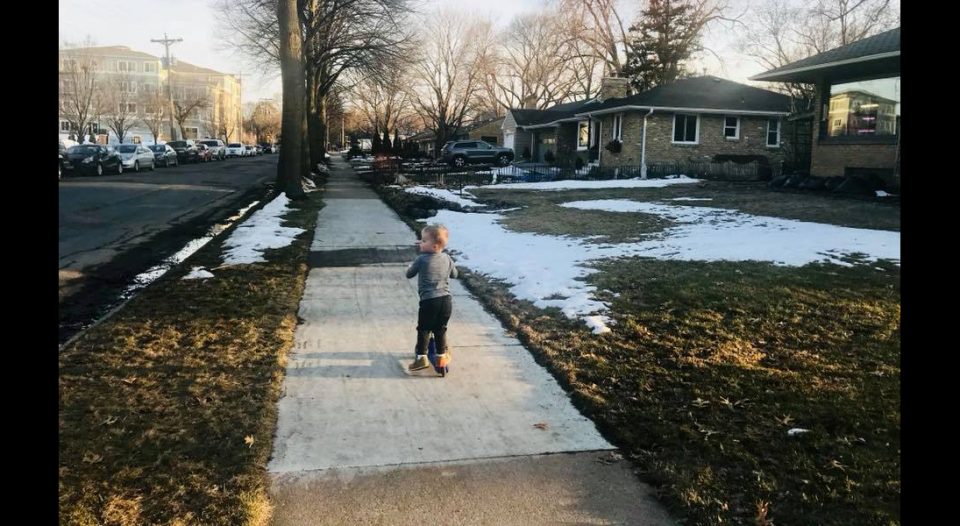I’m sitting at my neighborhood coffee shop, thousands of miles away from the ostensibly dangerous Central American migrants threatening to cross the U.S. border. Miles, even, from the more murderous neighborhoods of my city (Minneapolis), where gangs shoot each other—and sometimes innocent bystanders—over turf wars and drug feuds. Miles, even, from the encampment in Minneapolis of people who don’t have a safe place to stay, many of them American Indian and battling demons of mental illness and drug addiction—some of them women and children, there by circumstance and not choice.
I’m sitting here, wondering what it really means to be safe.
We sacrificed a lot to live here, paying less than we would have in our old home of Southern California but more than we would have in almost any other Minneapolis neighborhood because we wanted to walk to restaurants, shops, lakes and parks. We wanted our children to attend an exemplary public school and be able to take public transportation downtown to work.
We push my youngest son in a stroller, play baseball in the backyard, let the boys ride their scooters up to the nearby shops and restaurants. And we marvel at our fortune to live here, where kids still feel comfortable waving goodbye to Mom and Dad while riding bikes to the park and wading pool alone. It conveys a sense of urban neighborhood rare in America in 2018.
We—and when I say “we,” I mean all of us but especially my fellow well-intentioned millennial young professionals and parents—do as much as we can to make sure we’re safe. We research child care, elementary schools, organic onesies, neighborhoods and T-ball leagues. We use BPA-free everything and buy reusable boxes for school lunches. We sign up for baby music classes and spend all our free time pumping. We sacrifice ourselves for the betterment and safety of our homes, loved ones, possessions and, most importantly, our children.
A couple of weeks ago, my son’s kindergarten class (in a school ranked 10/10 on all the websites I consulted) had a Readers Theater performance. When we got there, I was shocked to see that nearly every other parent was in attendance. A crowd of white-collar professionals and stay-at-home parents. It was a remarkable cross section, somewhat racially and ethnically diverse, some people speaking languages other than English. It was a credible representation of the lengths we would all go to support our children—and the ways so many of us worked in fields that would support that desire and allow us to leave work in the middle of the day.
I was aware of this privilege and its rarity, and I was grateful for it.
Yesterday another event happened at my son’s school—this one significantly less comforting and scarier. After the after-school language classes finished for the day, kids played hide-and-seek in front of the school. A few parents stood around and watched, chatting. It was again an environment of privilege and of parental dedication.
A child is born; God is made unsafe, vulnerable, a crying baby in a manger with unmarried and non-wealthy parents.
As the kids were playing in the mid-December darkness of about 5:30 p.m., a white man in a newspaper cap with a long, thin black beard leaped out of the shadows and grabbed an 8-year-old girl, attempting to abduct her. She screamed and twisted violently away, running into the school for safety.
As of now, they still haven’t caught the perpetrator. My son’s teacher sent home an excellent email the following morning about the way they had addressed the incident in class. Today as I envision my son in that school we scrimped, saved and fought to make sure he attended, I don’t feel scared or unsafe, but I do feel that slight stomach-churning sense of unease.
Perhaps in our Ring doorbell videos, school ratings and helicopter parent tendencies, we’ve forgotten the real truth that, in this world, there is no such thing as absolute safety. On a random Tuesday there can be an attempted abduction at your child’s highly regarded public school. Or on a random Thursday you can get a call that your latest mammogram detected something different, or your spouse doesn’t love you anymore, or your mother doesn’t remember you anymore, or your investments just went down the tubes and you got laid off from your job.
It’s tempting to put our faith in manufactured things like money, houses or 401Ks. In a matter of days, though, it’s Christmas. A child is born; God is made unsafe, vulnerable, a crying baby in a manger with unmarried and non-wealthy parents.
Christmas reminds us that our safety rests not in ourselves but in each other and in the God who became one of us, despite the inherent safety risks of being human.






